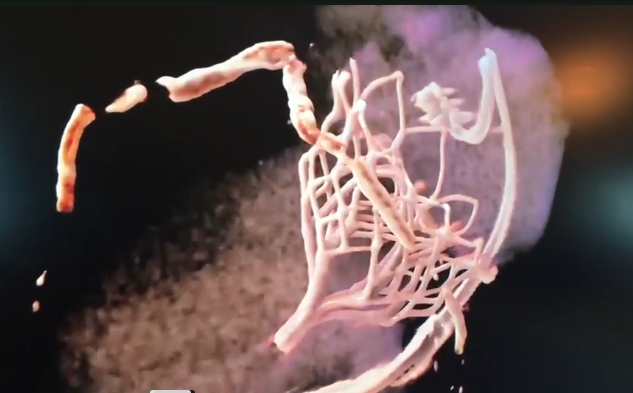
July 9, 2019 — Neovasc Inc. announced that its Tiara transcatheter mitral valve replacement (TMVR) device and its Neovasc Reducer device for the treatment of refractory angina were highlighted in presentations at the CSI Frankfurt 2019 conference, June 26-29, in Frankfurt, Germany.
Lenard Conradi, M.D., surgical director of minimally invasive and transcatheter heart valve procedures, University Heart Center Hamburg, Department of Cardiovascular Surgery, provided an overview of the TIARA program, including in-depth imaging required for screening patients, and clinical evidence demonstrating the resolution of mitral regurgitation and improvement in New York Heart Association (NYHA) class.
Tiara is a self-expanding mitral bioprosthesis specifically designed to treat mitral valve regurgitation (MR) by replacing the diseased valve. Conventional surgical treatments are only appropriate for about half of MR patients, who number an estimated 4 million in the U.S. with a similar number of patients affected throughout Europe. Tiara is implanted in the heart using a minimally invasive, transapical transcatheter approach without the need for open-heart surgery or use of a cardiac bypass machine.
Prof. Shmuel Banai, M.D., Neovasc's medical director, presented an overview of the Reducer's performance following more than 1,000 devices implanted in Europe. In the presentation evidence-based data was presented, demonstrating the high efficacy and safety profile of the Reducer in reducing angina severity, improving quality of life, improving exercise capacity, and improving systolic and diastolic function of the heart.
The Reducer is CE-marked in the European Union for the treatment of refractory angina, a painful and debilitating condition that occurs when the coronary arteries deliver an inadequate supply of blood to the heart muscle, despite treatment with standard revascularization or cardiac drug therapies. It affects millions of patients worldwide, who typically lead severely restricted lives as a result of their disabling symptoms, and its incidence is growing. The Reducer provides relief of angina symptoms by altering blood flow in the heart's circulatory system, thereby increasing the perfusion of oxygenated blood to ischemic areas of the heart muscle. Placement of the Reducer is performed using a minimally invasive transvenous procedure that is similar to implanting a coronary stent and is completed in approximately 20 minutes.
For more information: www.neovasc.com


 January 05, 2026
January 05, 2026 









